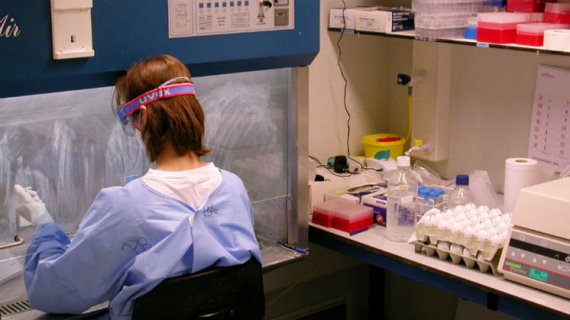The Dutch government is spending less and less on research and innovation, said the Rathenau institute this week. That decline is set to continue at the same rate in the near future: in four years’ time funding for research and innovation will be down by another 200 million euros compared with now. Most of the cuts are made by the ministry of Economic Affairs (EZ), which has scrapped one quarter of its research budget.
EZ allocated 30 million euros less to DLO research in 2015 than ten years ago. That has immediate consequences for Wageningen research institutes. Breukink: ‘Take EZ spending on nature research, for instance. The amount actually budgeted for knowledge base research at Alterra was more than one million lower last year. Because this money is often used as cofinancing for acquiring projects tendered by other financiers, the potential loss of turnover runs to 3 million euros.’
As a consequence DLO is finding it increasingly hard to exploit its research facilities to the full, says Breukink. ‘Although we do often manage to purchase new research facilities. For example, we are now going to invest in new buildings for the Central Veterinary Institute.’ The problems start, however, when clients such as science organization NWO or the EU have to be billed for the use of these facilities. These clients are not willing to pay the full costs. A problem affecting all the technological institutes in the Netherlands.
‘To maintain the innovative strength of the Dutch economy, the government needs to continue investing in applied research,’ says Breukink. The executive board and other universities and research institutes therefore intend to appeal to the next cabinet. But Wageningen UR can do more to address this itself, adds Breukink. ‘We must improve the collaboration within Wageningen UR and with our partners. Examples are the collaboration with TNO in the field of nutrition and the biobased economy, and with Deltares on water-related issues.’ DLO’s business model needs rethinking too, in Breukink’s view. ‘A lot of the work is now just billed by the hour but perhaps it would also be feasible to have a share of the profits generated by our research.’ Working out these sorts of ideas is a priority for 2016.

